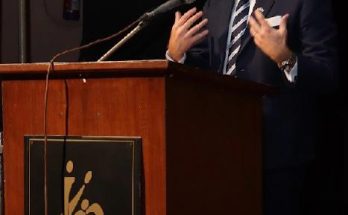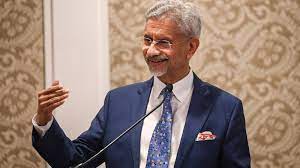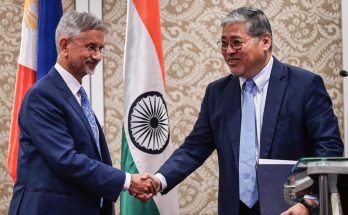
With the Maldives government imposing political emergency, all eyes are on India and options it will exercise to resolve the worsening crisis in the Indian Ocean atoll nation.India has voices its concern and underlined that it is disturbed over the suspension of constitutional rights of people of the Maldives.
The Maldives crisis poses a diplomatic test for the Modi government amid calls for India to intervene and stabilise the situation in the island nation.In a statement by the Ministry of External Affairs, India has expressed its concern over the suspension of constitutional rights of the people of Maldives and said that it will be closely monitoring the situation. While it is looking at implementing sanctions to force the Yameen government to restore normalcy, it is not keen on sending troops on the ground or even a special envoy. This is despite former president Mohamed Nasheed’s request through a tweet “to send an envoy, backed by its military to release judges and political detainees”. India, along with China, has issued travel advisory on travelling to this popular tourist destination and is considering placing restrictions on members of the Yameen government travelling abroad.
In a quite anticipated move, the government of Maldives declared a 15-day emergency and arrested opposition leader and two Supreme Court judges after the island nation erupted in protests against the government’s refusal to implement the Supreme Court ruling to free nine political prisoners. The declaration of emergency gives the government wide powers to curb democratic rights, make arbitrary arrests and seize property.
While opposition leader Maumoon Abdul Gayoom (former President and Mr Yameen’s half-brother) was arrested on charges of bribery and attempt to overthrow the government, there was so clarity on the reason behind the arrest of the two judges. Immediately after the emergency was declared, security forces entered the Supreme Court building to arrest the judges.
Addressing the nation, President Yameen said that “though certain rights will be restricted, general movements, services and businesses will not be affected”. He justified the situation on the grounds that the Supreme Court order to release the political prisoners, including former President Nasheed was an “infringement of national security and public interest” since it impinged upon the powers of the state. Ever since the court verdict was issued, Mr Yameen came down heavily on the judges insisting that the Supreme Court has been neglecting the government’s letters raising concerns regarding the difficulties of implementing the order as the cases against the political prisoners are at different legal stages.
However, it is apparent that President Yameen fears that his authoritarian powers would be gradually slipping away if such an extreme measure is not taken. The government has refrained from commenting on the security forces storming the Supreme Court building or the arrests made. Former President Nasheed has termed this decision as unconstitutional and illegal.
Author Profile
- India Writes Network (www.indiawrites.org) is an emerging think tank and a media-publishing company focused on international affairs & the India Story. Centre for Global India Insights is the research arm of India Writes Network. To subscribe to India and the World, write to editor@indiawrites.org. A venture of TGII Media Private Limited, a leading media, publishing and consultancy company, IWN has carved a niche for balanced and exhaustive reporting and analysis of international affairs. Eminent personalities, politicians, diplomats, authors, strategy gurus and news-makers have contributed to India Writes Network, as also “India and the World,” a magazine focused on global affairs.
Latest entries
 DiplomacyApril 10, 2024Diplomat-author Lakshmi Puri pitches for women power at LSR
DiplomacyApril 10, 2024Diplomat-author Lakshmi Puri pitches for women power at LSR India and the WorldApril 6, 2024UN envoy pitches to take India’s solutions to the world stage
India and the WorldApril 6, 2024UN envoy pitches to take India’s solutions to the world stage CultureApril 5, 2024Youth in Diplomacy: Making it Matter with LSR Model UN 2024
CultureApril 5, 2024Youth in Diplomacy: Making it Matter with LSR Model UN 2024 India and the WorldMarch 28, 2024India to China: Normalization of troops deployment imperative for restoring ties
India and the WorldMarch 28, 2024India to China: Normalization of troops deployment imperative for restoring ties







